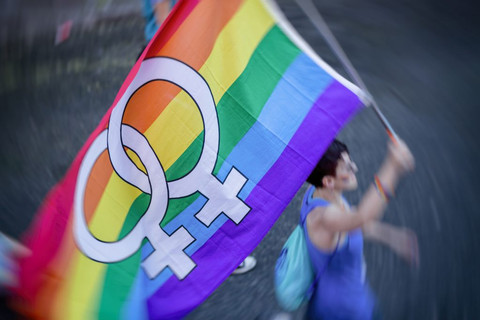
A new study has shown that Romanians are increasingly more tolerant towards LGBTI rights – with 43 percent saying that they support a legal form of same-sex union in Romania, either as civil unions or marriage.
That number has doubled since 2016, when a citizens’ initiative to alter the Romanian constitution to explicitly reference marriage as a union between a man and a woman was launched.
That citizens’ initiative gathered over three million signatures – substantially more than the 500,000 required to kick start a constitutional amendment referendum.
Despite winning a large majority of those turning out to vote, the referendum of 2018 to approve the constitutional change failed, as the turnout was only 21.1 percent, below the required voter-turnout threshold of 30 percent.
Had it been approved at the ballot box, the constitutional change would have implicitly prohibited same-sex marriages.
The new study commissioned by ACCEPT Romania, an NGO fighting for LGBTI rights, points to regional differences when it comes to accepting same-sex unions.
People from eastern and southern Romania are less inclined to do so, compared with those living in the western part of the country. The capital Bucharest stands above the national average.
Young adults show a higher degree of tolerance in supporting any form of legal union between people of the same sex, as do those who have a gay family member or acquaintance.
Some 68 percent of those taking part in the study agreed that all families should be protected by law in Romania, including same-sex families. Again, the percentage of those age 35 and below supporting this idea was higher.
“This research shows that public opinion in Romania is changing towards accepting equal rights for all families in our community. Moreover, we are seeing growing support for same-sex marriage, especially among young adults. Young people are more inclined to regard equality before the law as essential, and apply the same principles to LGBTI couples”, Teodora Ion-Rotaru, executive director of ACCEPT Romania, told EUobserver.
The majority of those favouring same-sex marriages are also in favour of gay couples raising children.
Three-quarters of those interviewed for the study say that legalising gay marriage would not impact their lives in any manner, and half agree that those from the LGBTI community should benefit from the right to inheritance.
The public shift in attitude is all the more significant – since Romanians regard family as their main personal value in life, ahead of health and religious belief.
“Romanians are increasingly more prepared to accept the regulation of equal marriage and civil partnership and politicians should act accordingly and take account of that”, Ion-Rotaru said.
Despite the shift in progressive attitudes, the majority of Romanians still oppose legalising gay unions. There are have been a total of 21 gay couples suing Romania at European Court of Human Rights in Strasbourg, over their lack of legal protection in the last few years.
Finding a solution to curb LGBTI discrimination, not only in Romania but throughout eastern Europe, would also have a positive economic impact.
Open for Business, a coalition of dozens of global companies promoting LGBTI+ inclusion said earlier this week that LGBTI discrimination costs eastern European countries almost two percent a year in economic growth.
Their research showed that countries such as Hungary, Poland, Romania and Ukraine are losing billions of euros each year due to the lack of equal workplace rights for LGBTI staff, plus the brain-drain of those skilled workers from the community leaving for countries that are more welcoming.








